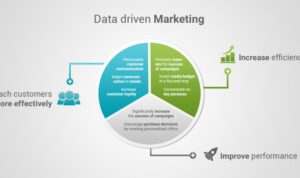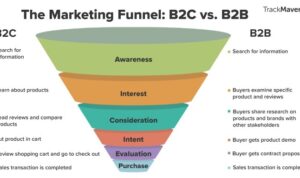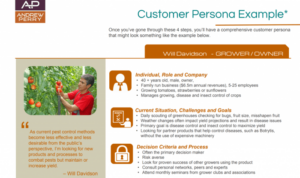Developing an Omnichannel Marketing Strategy sets the stage for businesses to revolutionize their marketing approach, seamlessly blending online and offline channels to create a unified customer experience. Dive into this dynamic journey filled with innovation and strategic insights.
From understanding the core concept to implementing cutting-edge technology, this guide will equip you with the knowledge to elevate your marketing game to new heights.
Understanding Omnichannel Marketing
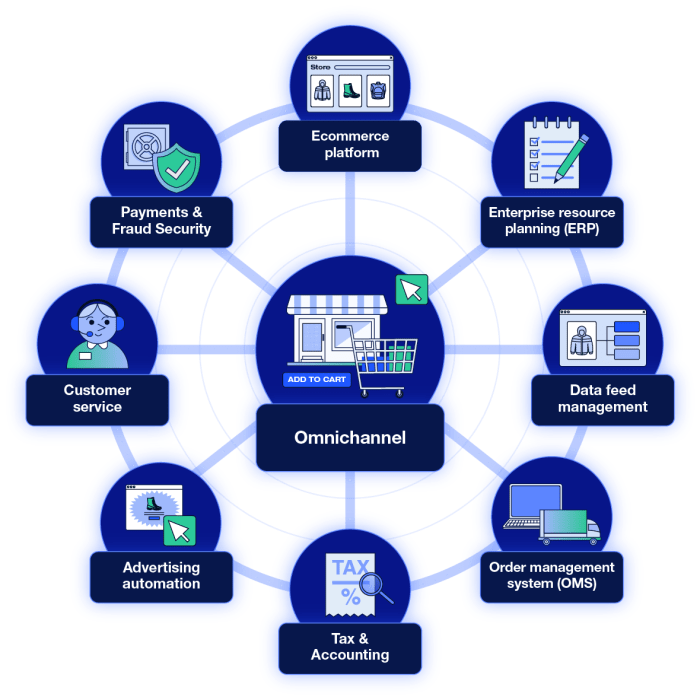
Omnichannel marketing is a strategy that involves providing a seamless and integrated shopping experience for customers across all channels, whether it be online, offline, mobile, or in-store. It focuses on creating a consistent brand presence and message to engage customers effectively at every touchpoint.
Examples of Successful Omnichannel Marketing Strategies, Developing an Omnichannel Marketing Strategy
- Starbucks: Starbucks has successfully implemented an omnichannel strategy by allowing customers to order ahead via their mobile app, pick up in-store, or have their order delivered. This seamless experience has increased customer loyalty and satisfaction.
- Nike: Nike offers a consistent experience across its website, mobile app, and physical stores. Customers can browse products online, customize their sneakers, and even have them delivered to their nearest store for pickup. This strategy has boosted sales and customer engagement.
Benefits of Implementing an Omnichannel Approach for Businesses
- Improved customer experience: By providing a seamless shopping experience across all channels, businesses can enhance customer satisfaction and loyalty.
- Increased sales: Omnichannel marketing allows businesses to reach customers at multiple touchpoints, leading to higher conversion rates and revenue.
- Enhanced brand visibility: Consistent messaging and branding across all channels help businesses establish a strong brand presence in the market.
- Data-driven insights: By tracking customer interactions across various channels, businesses can gather valuable data to optimize their marketing strategies and improve customer engagement.
Key Components of an Omnichannel Marketing Strategy
Omnichannel marketing strategy involves various key components that are essential for its successful implementation and execution. These components work together to create a seamless and integrated customer experience across all channels.
Data Analytics and Customer Insights
Data analytics and customer insights play a crucial role in developing an omnichannel marketing strategy. By analyzing customer data and behavior patterns, businesses can gain valuable insights that help in understanding customer preferences, needs, and expectations. This information allows companies to tailor their marketing efforts and personalize interactions with customers, ultimately leading to higher engagement and conversion rates.
Consistency Across All Channels
One of the key principles of an omnichannel approach is maintaining consistency across all channels. This consistency ensures that customers have a uniform experience regardless of the channel they choose to interact with the brand. Whether it’s a physical store, website, mobile app, or social media platform, the messaging, branding, and overall experience should be cohesive and aligned. This helps in building trust and loyalty among customers and reinforces the brand identity.
Implementing Omnichannel Customer Experiences
Creating seamless customer experiences across different channels is crucial in today’s competitive market. By ensuring a cohesive and personalized approach, businesses can enhance customer satisfaction and loyalty.
Best Practices for Seamless Customer Experiences
- Integrate data and insights from various channels to provide a unified view of the customer.
- Ensure consistency in messaging, branding, and promotions across all touchpoints.
- Offer multiple communication channels for customer support, such as chat, email, and phone.
- Implement a robust CRM system to track customer interactions and preferences.
- Optimize the user experience on all platforms, including mobile devices and desktop.
Role of Personalization in Enhancing Customer Experiences
-
Personalization
plays a key role in creating meaningful interactions with customers. By leveraging data and analytics, businesses can tailor their messages and offerings to individual preferences and behaviors.
- Personalized recommendations based on past purchases or browsing history can increase conversion rates and customer engagement.
- Dynamic content that adapts to the user’s preferences can enhance the overall shopping experience and drive repeat business.
Examples of Companies Excelling in Omnichannel Customer Experiences
- Amazon: With its seamless shopping experience across devices and channels, Amazon has set the standard for omnichannel retail.
- Starbucks: The coffee giant’s mobile app integrates loyalty rewards, mobile ordering, and payment options for a personalized and convenient customer experience.
- Disney: Through its MagicBand technology, Disney offers a seamless experience for visitors by integrating park access, hotel reservations, and payment options into a single wearable device.
Technology and Tools for Omnichannel Marketing: Developing An Omnichannel Marketing Strategy
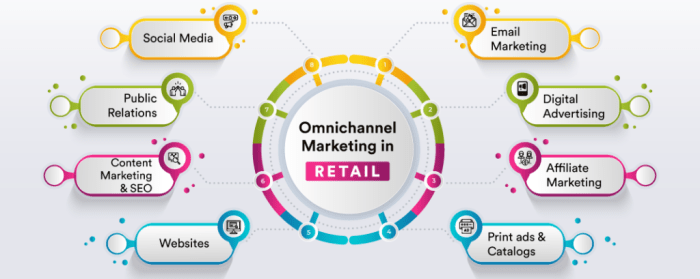
In today’s digital landscape, technology plays a crucial role in implementing an effective omnichannel marketing strategy. From CRM systems to marketing automation platforms, businesses have a wide array of tools at their disposal to create seamless customer experiences across channels.
CRM Systems for Omnichannel Marketing
- Customer Relationship Management (CRM) systems like Salesforce, HubSpot, and Zoho CRM are essential for managing customer data and interactions.
- These platforms help businesses track customer behavior, preferences, and purchase history across various touchpoints.
- Integrating CRM systems with other tools allows for personalized marketing campaigns and targeted messaging based on customer insights.
Marketing Automation Platforms for Omnichannel Marketing
- Marketing automation platforms such as Marketo, Pardot, and Mailchimp enable businesses to automate marketing tasks and workflows.
- These tools help in sending personalized messages, triggering actions based on customer behavior, and analyzing campaign performance.
- By integrating marketing automation platforms with CRM systems, businesses can create cohesive omnichannel marketing strategies that drive engagement and conversions.
Significance of AI and Machine Learning in Omnichannel Marketing
- Artificial Intelligence (AI) and Machine Learning algorithms play a crucial role in optimizing omnichannel marketing efforts.
- AI-powered tools can analyze vast amounts of customer data to identify patterns, predict behaviors, and personalize marketing messages in real-time.
- Machine Learning algorithms help businesses automate decision-making processes, optimize marketing campaigns, and deliver relevant content to customers across channels.










